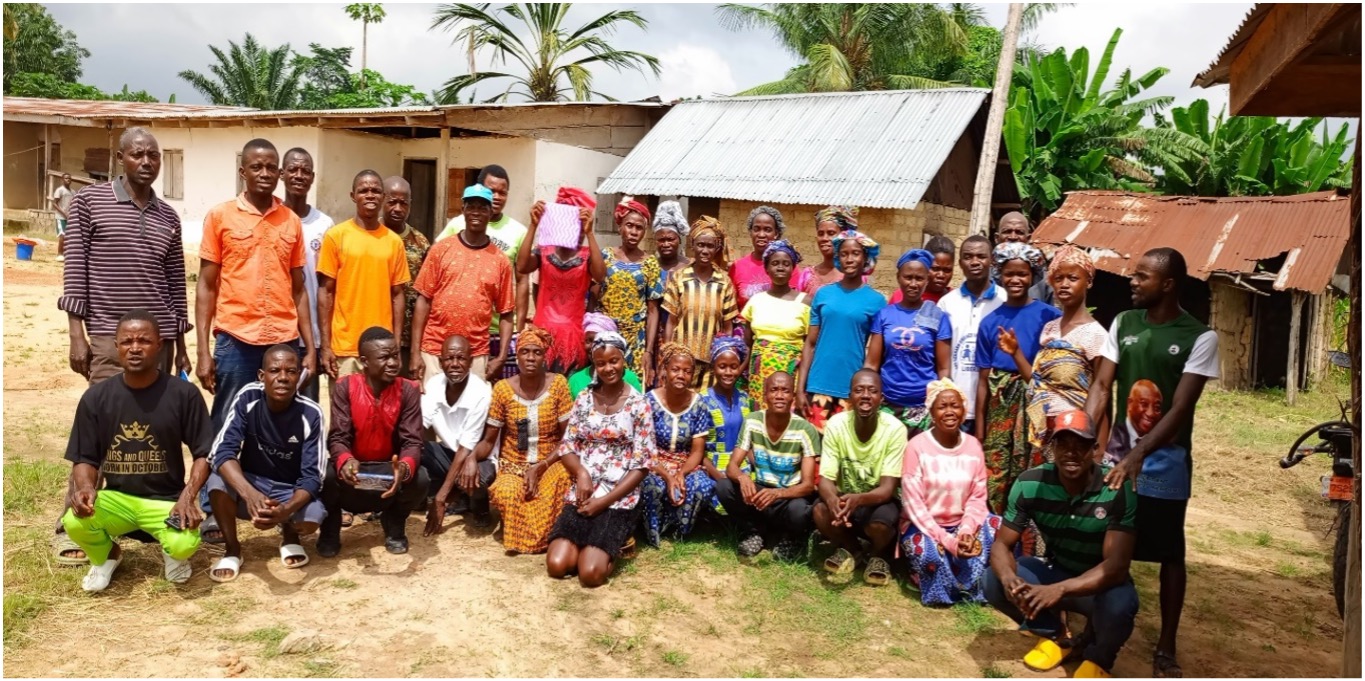|
FROM THE FIELD:
ECODIT Promotes Sustainable Development Through Gender Integration
By Celia Zeilberger, Directors of Communications and Learning

ECODIT is a women-owned small business (WOSB) working across sectors throughout the world to meet Sustainable Development Goal 5: Achieve gender equality and empower all women and girls. The company works to advance this goal in the environment, energy, climate, resilience, and governance sectors, among others. “We have seen that by adopting a gender focus throughout implementation, we not only advance gender equality but also amplify and sustain development impact,” said ECODIT President Roula Attar.
In the land tenure and property rights field, for example, Liberia is advancing women’s rights and strengthening secure land tenure. Through the USAID Liberia Land Management Activity, ECODIT provided training on land tenure to more than 300 community leaders, youth, members of marginalized groups, and town criers—half of whom were women. Participants engaged with each other in open discussions that ended up changing deeply held beliefs. For example, at the beginning of one training, 90% of participants expressed their view that women are not entitled to land rights. After the training, 85% of those same participants changed their mind and supported women’s land rights. This shift in attitudes paved the way for the emergence of new female leaders in the sector and ECODIT is now supporting these leaders with leadership tools and mentorship opportunities, as well as training on dispute resolution and land tenure processes.
Taking active steps to engage women can also lead to improved economic and environmental outcomes. In Zimbabwe, for example, ECODIT is working with communities to boost their incomes and enhance their resilience, with a strong focus on women’s meaningful participation. For the USAID Resilience ANCHORS Activity, ECODIT trained primarily female community members in the mid-Zambezi valley on new environmentally sustainable livelihoods, organized them into producer groups, and connected them to markets. There are now 500 more households to which women contribute income for the first time. To further build on this progress, ECODIT introduced savings and lending groups in communities without access to financial services, so women and their families can directly invest in their future.
ECODIT has found that engaging women and girls is particularly critical for moving the needle on social and environmental issues. In Cambodia, ECODIT is mobilizing youth in a wide-ranging campaign to change behaviors impacting the environment. For the USAID Green Future Activity, ECODIT organized high school and college students into “Green Groups” that design and implement social media campaigns and events in support of environmental conservation. An impressive 80% of these groups’ members are women. The Green Groups have helped usher in wide ranging change in Cambodia. The project’s endline Knowledge, Attitudes, and Practices (KAP) survey showed that 83% of youth now believe that biodiversity conservation, forest protection and sustainable natural resource management are important, compared to just 45% at the project's start in 202. The survey also showed that young people are now more than 2.5 times as likely to engage in frequent discussions with their friends about environmental issues, and nearly six times as likely to engage in discussions with family members about these issues.
In Lebanon, where ECODIT is promoting sustainable solid waste management (SWM) solutions through the USAID DAWERR Activity, women have also played a key role in mobilizing communities to address long-standing challenges in the country’s SWM sector. ECODIT encouraged women and youth to join local Municipal SWM Committees, which advise municipalities and influence decision-making, and the committees now have equal representation of women and men across target municipalities. In addition, DAWERR engages women, youth and marginalized groups in co-creation workshops, town hall meetings, and community events.
These examples all demonstrate the importance of gender integration to advancing development outcomes and to ensuring sustainability. Building on this work, ECODIT is now working with USAID to promote gender equality and women’s empowerment across the Agency’s Program Cycle. Specifically, for the USAID Gender Leadership, Equity, and Advancement for Development (LEAD) Program, ECODIT and its partners provide collaborative, multi-sectoral gender integration technical assistance to USAID Missions and other Operating Units; promote thought leadership and the development of knowledge products and learning; build connectivity and enhance knowledge sharing platforms for Agency and external stakeholders; and support learning and partnership through small grants to local and under-utilized partners focused on promoting gender equality and deconstructing harmful social norms and behaviors.
The future of development is bright, and women have a critical role to play in realizing their countries’ full potential. ECODIT is proud to have partnered with USAID and local communities to support women’s meaningful engagement across development sectors and looks forward to amplifying these partnerships and continuing to work towards SDG 5, and beyond.
|